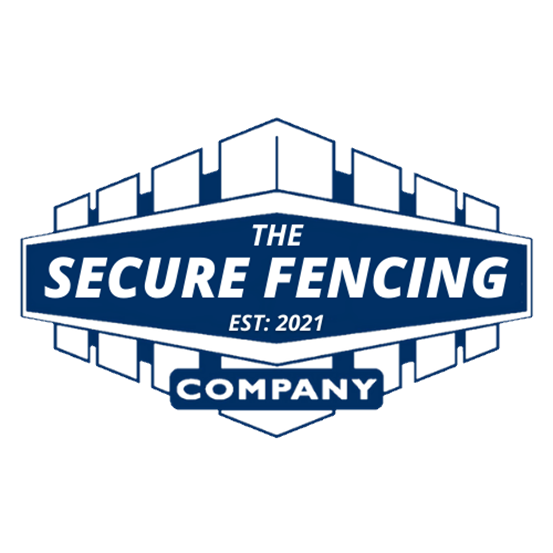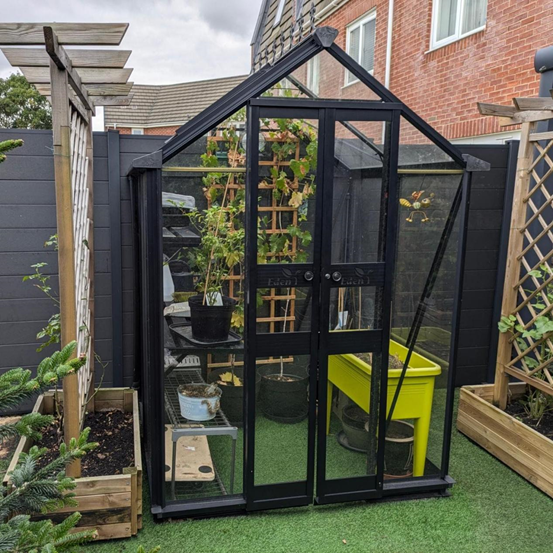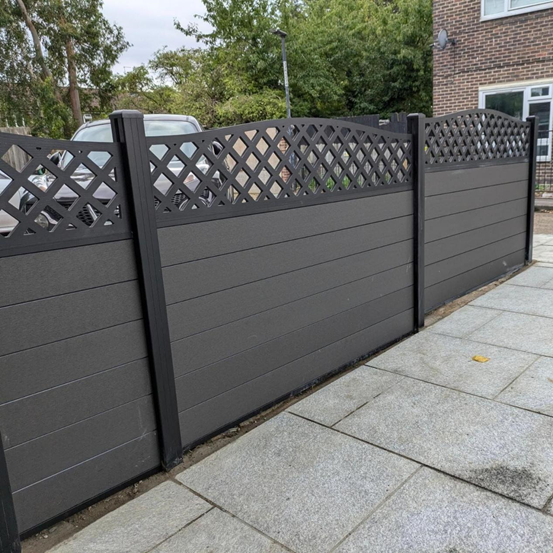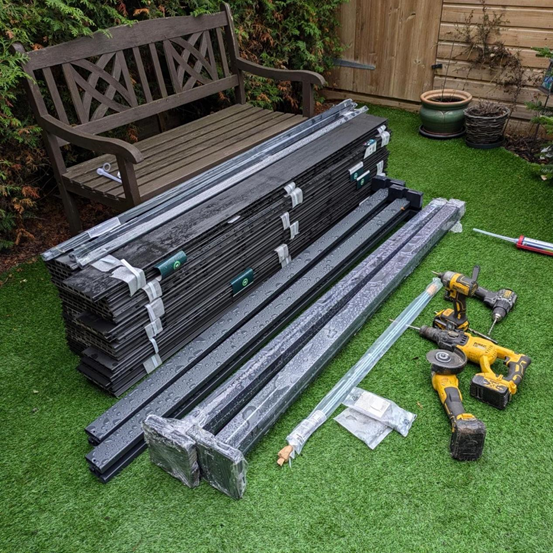Composite Fencing Services in London: A Comprehensive Guide
Composite Fencing Services in London: A Comprehensive Guide
Blog Article
Composite Fencing Services in London: A Comprehensive Guide

Fencing plays a crucial role in the overall aesthetic and security of a property, whether residential or commercial. In recent years, composite fencing has emerged as a popular choice for homeowners and businesses in London. This innovative fencing solution offers a combination of durability, low maintenance, and environmental sustainability, making it an excellent option for those looking to invest in a long-term fencing solution. In this article, we’ll explore composite fencing in detail, covering everything from its advantages and installation process to its suitability for London’s unique environment, and how to choose the right fencing service.
What is Composite Fencing?

Composite fencing is made from a mixture of recycled wood fibers and plastic bonded together using a resin-based adhesive. This unique combination creates a material that replicates the natural appearance of timber while offering enhanced durability and strength. Composite fencing is available in a variety of colors, styles, and textures, making it versatile enough to suit both modern and traditional property designs. Composite Fencing Company London
The primary components — wood fibers and plastic — are often sourced from recycled materials, making composite fencing an eco-friendly alternative to traditional wood or metal fences. The plastic content helps prevent the issues typically associated with timber, such as rot, warping, and insect damage, while the wood fibers provide a natural and appealing finish that enhances any outdoor space.
The Benefits of Composite Fencing for London Properties
When it comes to fencing options in London, composite fencing offers several distinct advantages over traditional materials like wood, metal, or vinyl. Whether you’re a homeowner looking to enhance the privacy of your garden or a business seeking to secure your premises, composite fencing provides the ideal combination of practicality and aesthetics.
1. Durability and Weather Resistance
London’s climate can be unpredictable, with regular rain, fluctuating temperatures, and occasional harsh winds. Composite fencing is designed to withstand such weather conditions without suffering from the deterioration typically seen in wood fences. The plastic component of composite fencing makes it resistant to moisture, so it won’t absorb water, which could lead to rotting or warping in traditional timber fences.
Moreover, composite fencing is highly resistant to UV rays, meaning it won’t fade or discolor when exposed to sunlight. This weather resilience ensures that your fence will retain its appearance and structural integrity for many years, making it a long-term investment for London properties.
2. Low Maintenance
One of the most significant selling points of composite fencing is its minimal maintenance requirements. Unlike wood, which needs regular staining, painting, or sealing to prevent weather damage, composite fencing retains its color and finish without the need for such treatments. A simple cleaning with soap and water is all that’s required to keep the fence looking new, making it an ideal choice for busy homeowners or property managers.
In a city like London, where time is a valuable commodity, composite fencing’s low-maintenance nature is a major advantage. You can enjoy a beautiful, durable fence without having to invest time and effort in its upkeep.
3. Environmental Sustainability
For eco-conscious residents of London, composite fencing provides a more sustainable option than traditional fencing materials. Since composite fences are made from a combination of recycled wood fibers and plastic, they help reduce the demand for virgin timber and plastics, thereby minimizing environmental impact. Many manufacturers also employ eco-friendly production processes, further reducing the carbon footprint associated with composite fencing.
Choosing composite fencing over wood or vinyl helps reduce the overall demand for deforestation and plastic production, making it a responsible choice for homeowners and businesses looking to make environmentally sound decisions.
4. Aesthetic Versatility
London is a city with a rich architectural heritage, blending modern design with traditional styles. Composite fencing caters to a wide range of aesthetic preferences, as it is available in various colors, textures, and finishes. Whether you’re looking to match the classic charm of a Victorian home or create a sleek, modern look for a contemporary property, composite fencing offers the versatility to meet your needs.
Unlike wood, which can fade or discolor over time, composite fencing maintains its appearance for years, ensuring your property retains its curb appeal. This makes it an attractive choice for those who prioritize both functionality and aesthetics.
5. Increased Property Value
Investing in highquality fencing can significantly enhance the value of your property. Composite fencing not only improves the security and privacy of your home or business but also adds to its visual appeal. Potential buyers or tenants are often drawn to properties with low-maintenance, long-lasting features, and a composite fence can be a key selling point when it comes time to sell or rent.
By opting for composite fencing, you’re making an investment that not only benefits you in the short term by enhancing your property’s security and aesthetics but also in the long term by increasing its market value.

The Installation Process: What to Expect
When it comes to installing composite fencing, the process is relatively straightforward, especially when handled by experienced professionals. The steps involved in the installation of composite fencing can vary depending on the specific product and design, but the overall process typically includes the following stages:
1. Consultation and Site Assessment
The first step in the installation process is a consultation with your chosen fencing contractor. During this stage, you’ll discuss your requirements, including the desired style, color, and height of the fence, as well as any specific needs related to your property. The contractor will also conduct a site assessment to determine the layout, soil conditions, and any potential obstacles that may affect the installation.
2. Design and Planning
Once the site assessment is complete, the contractor will create a detailed design plan for your composite fence. This plan will outline the exact placement of the fence, the type of panels to be used, and any additional features such as gates or decorative elements. At this stage, you’ll also receive a cost estimate for the project, including materials and labor.
3. Preparation of the Site
Before the actual installation begins, the site will need to be prepared. This involves clearing any debris, vegetation, or existing fencing from the area where the new composite fence will be installed. The contractor may also mark the boundaries of the fence and set out the locations for the posts.
4. Post Installation
The first major step in the installation process is the installation of the fence posts. These posts provide the structural support for the fence and must be set securely in the ground. Depending on the soil conditions and the height of the fence, the posts may be installed using concrete for added stability.
5. Panel Installation
Once the posts are in place, the composite panels are attached to the posts using brackets or other fasteners. Composite fencing panels are often pre-assembled, which makes the installation process quicker and easier. The panels are typically designed to interlock or overlap, providing a seamless appearance and ensuring privacy and security.
6. Finishing Touches
After the panels have been installed, the contractor will add any finishing touches, such as gates, decorative elements, or trim. The fence will be inspected to ensure that it is level, secure, and meets your expectations in terms of appearance and functionality.
Why Composite Fencing is Ideal for London
London’s unique environment and urban landscape make composite fencing an ideal choice for many homeowners and businesses in the city. Here’s why composite fencing works so well in London:
1. Weather Resilience
London’s climate is characterized by frequent rain and fluctuating temperatures. Composite fencing’s resistance to moisture and weather-related damage makes it particularly well-suited to this environment. Unlike wood, which can warp or rot due to exposure to rain, composite fencing retains its structural integrity, ensuring long-lasting performance even in London’s damp conditions.
2. Space Optimization
In densely populated areas of London, privacy is often a top priority for homeowners. Composite fencing, with its solid panels and minimal gaps, provides an excellent solution for creating a private, secure space in your garden or outdoor area. Whether you have a small urban garden or a larger suburban plot, composite fencing can be tailored to fit the dimensions of your space.
3. Noise Reduction
London is a bustling city, and noise pollution can be a concern for those living near busy roads or commercial areas. Composite fencing offers some degree of noise reduction, thanks to its dense construction. While it may not completely block out noise, it can help create a more peaceful and serene environment in your outdoor space.
Choosing the Right Composite Fencing Service in London
When it comes to installing composite fencing in London, it’s essential to choose a reputable and experienced fencing service provider. Here are some factors to consider when selecting a fencing contractor:
1. Experience and Expertise
Look for a contractor with a proven track record of installing composite fences. Experienced contractors will have the knowledge and skills necessary to handle any challenges that may arise during the installation process, such as uneven terrain or complex property layouts.
2. Quality of Materials
Ensure that the contractor uses high quality composite fencing materials from reputable manufacturers. The durability and longevity of your fence will depend on the quality of the materials used, so it’s important to choose a contractor who prioritizes premium products.
3. Customer Reviews and Testimonials
Before hiring a fencing service, take the time to read customer reviews and testimonials. This will give you insight into the contractor’s level of professionalism, reliability, and customer satisfaction. Positive reviews and recommendations are a good indicator of a trustworthy service provider.
4. Cost and Transparency
Obtain a detailed quote from the contractor that outlines all costs associated with the project, including materials, labor, and any additional services. A transparent contractor will provide a clear breakdown of the costs and will be upfront about any potential additional fees.
5. After-Sales Service
Choose a contractor who offers after sales service, such as warranties on materials and workmanship. This ensures that if any issues arise with your fence after installation, the contractor will be available to address them promptly.

Conclusion: Invest in Composite Fencing for Your London Property
Composite fencing is an excellent choice for those seeking a durable, low-maintenance, and aesthetically pleasing fencing solution for their London property. Its weather resistance, environmental sustainability, and long-term value make it an ideal option for both residential and commercial applications. By choosing the right fencing service provider and investing in high-quality composite materials, you can enjoy the benefits of a secure, beautiful fence that will last for years to come.
Whether you’re looking to enhance your garden’s privacy or secure your business premises, The Secure Fencing Company offers expert composite fencing services in London, ensuring a professional installation tailored to your specific needs. Contact us today for a consultation and let us help you transform your property with a premium composite fence.
Report this page